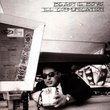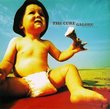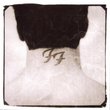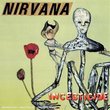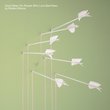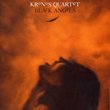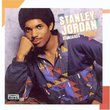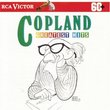| All Artists: Matthew Shipp Title: Matthew Shipp's New Orbit Members Wishing: 2 Total Copies: 0 Label: Thirsty Ear Original Release Date: 1/1/2001 Re-Release Date: 1/16/2001 Genres: Jazz, Special Interest, Pop, Classical Styles: Avant Garde & Free Jazz, Historical Periods, Modern, 20th, & 21st Century Number of Discs: 1 SwapaCD Credits: 1 UPCs: 700435709522, 070043570952 |
Search - Matthew Shipp :: Matthew Shipp's New Orbit
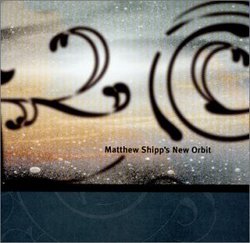 | Matthew Shipp Matthew Shipp's New Orbit Genres: Jazz, Special Interest, Pop, Classical Open the tray card to Matthew Shipp's second recording in Thirsty Ear's Blue Series and you see the simply scrawled words "Cosmic Consciousness," written in the pianist's handwriting. Such simplicity brings to mind how sel... more » |
Larger Image |
CD DetailsSynopsis
Amazon.com Open the tray card to Matthew Shipp's second recording in Thirsty Ear's Blue Series and you see the simply scrawled words "Cosmic Consciousness," written in the pianist's handwriting. Such simplicity brings to mind how seldom it is to have so grand a plan in place for music. Where Shipp's Pastoral Composure took an off-kilter look at hard bop (and a gorgeous look at "Frère Jacques") with trumpeter Roy Campbell as the only horn in the quartet, New Orbit calls on Wadada Leo Smith's trumpet as the sole horn. The music delves deeply into the consciousness of improvisation, building on alternating, near-meditative piano figures and then whispering and bursting with Smith's horn. The pacing is at ease, with Shipp's intermittent solo pieces wandering into and through themselves so that they take on a slight roiling appeal, only to be joined by bassist William Parker, drummer Gerald Cleaver, and Smith's loose, fat-toned trumpet--which seems connected via some cosmic dimension to Shipp's trance-triggering keyboard work. What's "cosmic" here? Perhaps it's just the idea that this foursome can come together and weave avant-garde explorations into something that, like the Art Ensemble of Chicago, rolls all jazz into a series of tunes that never veer from inspired, even visionary, brilliance. --Andrew Bartlett Similarly Requested CDs
|
CD ReviewsNew Directions in Jazz Arsophagus Wu | Tlon | 09/06/2003 (4 out of 5 stars) "9 months and one trumpet player separate Matthew Shipp's rewarding Pastoral Composure (recorded Jan 6, 2000) and New Orbit (recorded September 14, 2000), but already he is fully committed to the new direction he's chosen. For those unfamiliar with Matthew Shipp, he is I believe, the most ambitious and forward thinking musician/composer in modern jazz today. Shipp, in the last 3 years, has recorded several albums (6 since 2000) of his own, plus fantastic collaborations with DJ Spooky, Anti-Pop Consortium, Spring Heel Jack, and coming soon, El-P. During this time, he's moved beyond the abstractions of Cecil Taylor, but not into further abstraction. Shipp's vision remains complex and challenging yet accessible, and it appears that he's absorbed a multitude of styles: rock, hip-hop, electronica, and combined it with his own personally developed style into something that will appeal to jazz aficionados who demand new sounds, while opening the ears of fans of electronica and indie rock and even hip hop heads. This isn't cheap crossover pandering either - at no point does Shipp abandon his avant-garde past. He's just doing what all great jazz musicians have done: he's gone to "college" under great musicians (like David S. Ware in Shipp's case), and now he's making his own thing. Shipp is also the director of his vision, serving as executive producer for the "Blue Series" on Thirsty Ear Records, thus creating a positive symbiotic relationship between the two entities. Of all the Blue Series releases by Shipp on Thirsty Ear, New Orbit is his most complex and challenging. The rhythm section of Shipp on piano, William Parker (another monster) on bass and Gerald Cleaver on drums reprises the Pastoral Composure session, with trumpeter Roy Campbell replaced by avant-garde jazz monster trumpeter, Wadada Leo Smith. The addition of Smith most certainly helps set New Orbit apart from Pastoral Composer: gone are the up-tempo swingers, Ellington covers, and bizarro rendition of Frere Jacques. Shipp in fact solos only on a few pieces - and doesn't even play on a few others. Instead, he stretches out an abstract canvas for Wadada Leo Smith to paint with his fat, warm trumpet on. The recurring motif, the New Orbit "theme" appears 4 times. The entire band appears together on the first "New Orbit," one of the few times all four instruments are heard simultaneously. Smith's plays mournfully, but still warm and loose over softly beaten drums and an attractive, surprisingly melodic piano theme. Shipp performs the familiar theme on "Orbit 2," while Parker goes alone on "Orbit 3." Shipp and Parker reprise it, more forcefully this time, on the album closer, "Orbit 4." The icy, pretty theme is worth 4 renditions, each taking its own separate path, each interesting solo, as a duo, or quartet. This home-base, so to speak, brings the listener back each time after further excursions out in space such as "Chi" where Shipp's rolling clusters of sound and Cleaver's freeish beats provide a moody backdrop for Smith's extended solo or "Syntax" with it's subtle touches by Shipp, Parker, and Cleaver. Shipp only solos 3 times on New Orbit. Instead, his playing is mostly textural, providing barren vamps or blockish chords for smith's trumpet. This is no longer traditional, theme-trumpet solo-piano solo-bass solo-drums-theme jazz anymore, nor is it complete and total freedom - man, we?re out of the 60's. The music here is abstract but structured, complex but highly melodic, cold and minimal (Shipp) but warm and loose (Smith). The best example is the interplay between the pianist and trumpeter on the short "Maze Hint." Here, Shipp lays a delicate canvas of grays and blues for Smith to solo. The short tune gives way abruptly to bowed bass as Wadada Leo Smith is now painting on William Parker's canvas. New Orbit is not about solos, but sound, and is anything but standard-jazz. For this reason, I'd recommend Pastoral Composure before New Orbit. But the results here are more rewarding, more thick for your imagination. The shades of gray and steel blue with flourishes of orange and yellow remind me vividly of a moody autumn day in New York. The experience New Orbit provides takes a few listens for it to unfold, but it's well worth the effort. If you're familiar with Shipp, it's essential. If you're open-minded and enjoy modern art, but also art that reflects the world around, I'd say, New Orbit is for you too." Nice Set...yeah, nice Stephen | Virginia Beach, VA USA | 04/04/2001 (5 out of 5 stars) "I hade the impression that this was a little more "out" than his previous "Blue Series" disc, but it is a rather quiet affair. As a big fan of Avant Garde "jazz" I tend to shy away from sessions with piano players, in particular, pianist from the percussive, dense chord, Cecil Talyor school of playing. Luckily I listen with an open mind and I am always willing to change my mind.Shipp's recent work, his Thirsty Ear or on Ware's "Surrendered," leaves more space for the other players than his denser earlier work. The appeal of this "style" of music, for me, comes from the interactions of all of the musicians involved. This counterpoint is exciting but subtle on New Orbit. There are a couple of solo features for Shipp and a nice feature for bassist William PArker. So far, the Blue Series has expanded the language of this music offering a more lyrical approach to creative music. Personally, I am happy with the direction these musicians are going. Though not a criticism, these recordings are short on length (this one is right at 40 minutes) but hey, A Love Supreme is only 33 minutes long, so I guess its quality not quantity!" Taken by surprise conrad foley | chagrin falls, oh United States | 05/16/2003 (4 out of 5 stars) "I gave this one a try unheard. I was listening to rythmic but not necessarily melodic music (Bartok piano concertos, Mahivishnu Orchestra, Frank Zappa's Shut Up and Play ) and had heard about Shipp's work with the AntiPop Consortium. The reviews on Amazon[.com] led me to this one instead. I'm completely taken. The haunting solo peices reveal more with each listening and the horn work in the ensembles is breath taking. It's gotten me listening to Ornette Coleman again."
|

